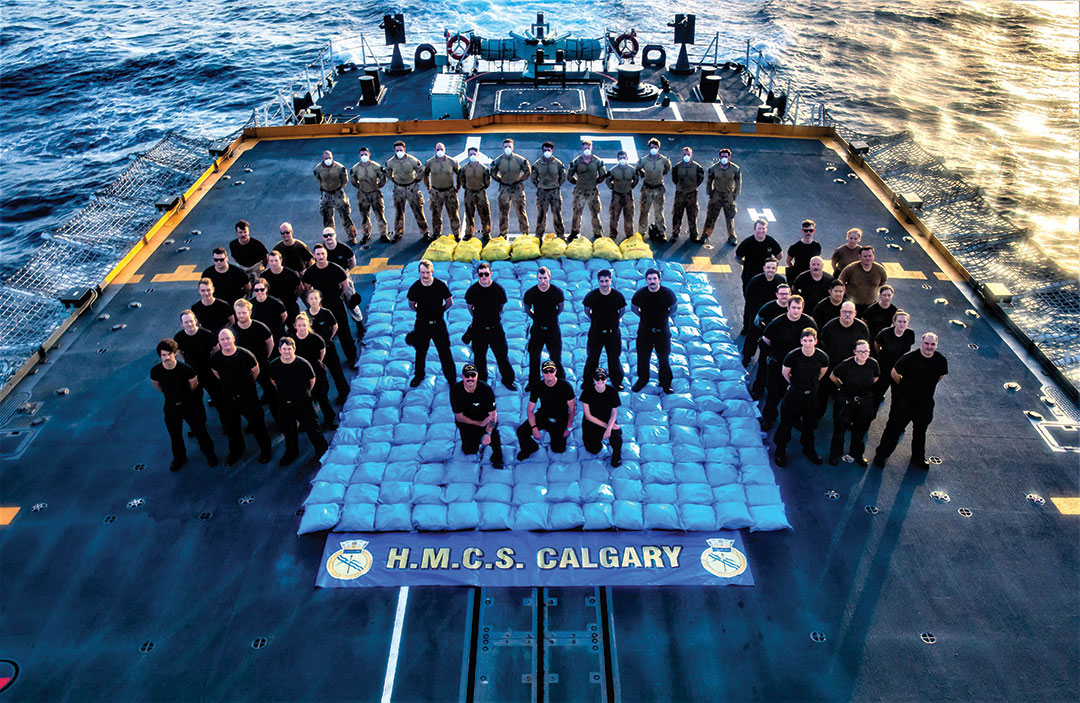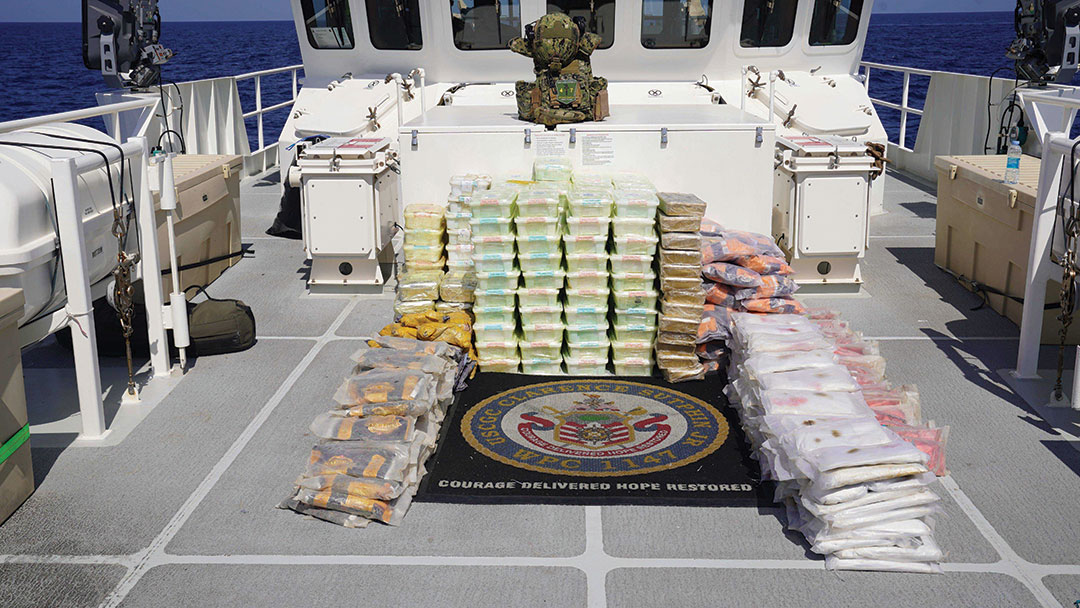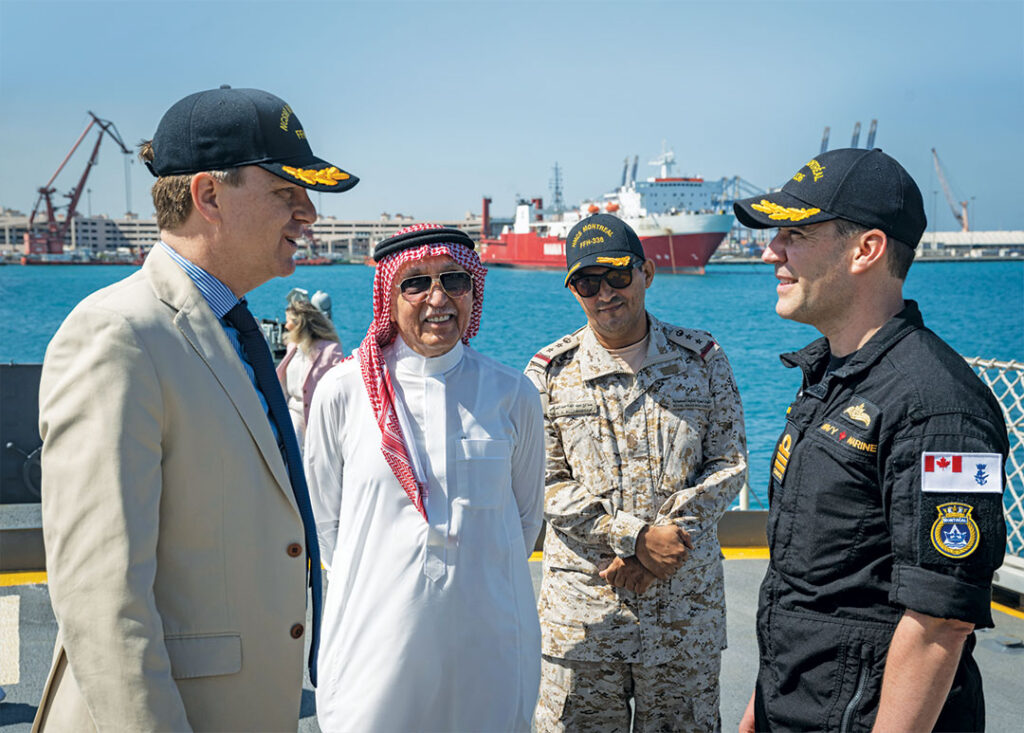The waters surrounding the Middle East and East Africa have some of the world’s most important shipping lanes. The Red Sea, Gulf of Aden, Indian Ocean and Gulf of Oman accommodate ships carrying about 27 million barrels of oil a day and a third of the world’s liquefied natural gas.
These same critical waterways provide trafficking routes for criminal and terrorist organizations. The United Nations Office on Drugs and Crime as of 2024 identified the “southern route” as a key pathway for opioid trafficking using the waterways surrounding the Arabian Peninsula.
Combined Maritime Forces (CMF), the world’s largest multinational naval coalition, upholds international order by countering illicit nonstate actors and promoting security, stability, and prosperity across their area of operations. Canada has been a leading member of this critically important force based in Bahrain.
Within the CMF, responsibility for countering drug trafficking and other illegal goods falls under the preserve of Combined Task Force (CTF) 150. As of 2024, this multinational naval force included ships and personnel from Australia, Canada, Denmark, France, Germany, Italy, Netherlands, New Zealand, Pakistan, Saudi Arabia, Spain, the United Kingdom and the United States.

The CMF, through the Regional Narcotics Interagency Fusion Cell co-led by U.S. Navy Central Command and the U.S. Drug Enforcement Administration, denied drug-traffickers across the region billions of dollars in revenue over the last 11 years and in 2024 disrupted narcotics worth an estimated $386 million.
Since CTF 150’s formation in 2001, Canada has assumed command six times, most recently from January to July 2024 after a handover from the French Navy. The Canadian-led task force included personnel from Australia, Bahrain and New Zealand.
Under this joint, Canadian-led command, CTF 150 conducted nine successful interdictions that seized more than 11,600 kilograms of narcotics within its area of operations, which covers 8.29 million square kilometers from the Strait of Hormuz to the Horn of Africa.
Concurrently, CTF 150 conducted intelligence gathering from space-based surveillance and reconnaissance platforms. The multinational cooperation of CTF 150 provides the opportunity for countries with different languages, religions, and cultures to work together on maritime security operations.
The successful operations achieved by CTF 150 demonstrate the effectiveness of collaborative command teams overseeing multinational assets. In April 2024, CTF 150 conducted Op Crimson Barracuda, a large-scale counternarcotics campaign that brought together elements from the Royal Canadian Navy, British Royal Navy, Indian Navy, U.S. Coast Guard and U.S. Navy. They seized over 4,900 kilograms of narcotics.

COMBINED MARITIME FORCES
Along with his fellow Canadian Armed Forces members, then-CTF 150 Commander Royal Canadian Navy Capt. Colin Matthews worked closely with U.S. allies to strengthen Canada’s integration capabilities and demonstrate its reliability as an essential member nation. Under Canadian command, CTF 150 seized over $100 million worth of illegal narcotics that were intended to finance criminal and terrorist organizations.
The achievements of CTF 150 ensure the disruption to criminal enterprises and maintain a powerful show of force to deter organizations from threatening legal maritime traffic.
As Capt. Matthews concluded his command in July 2024, he was congratulated on a job well done. Canada passed command of CTF 150 to Commodore Asim Sohail Malik, Chief Staff Officer to Commander Pakistan Fleet at Fleet Headquarters. This handover marked the 13th time Pakistan commanded CTF 150.

Middle Eastern and East African waterways provide transport routes for much of the world’s oil and natural gas. The importance of safeguarding these shipping lanes cannot be overstated. The role of the CMF is to protect this vital resource while combating criminals from transporting narcotics and other illegal goods that help finance violent extremist organizations.
The multinational command has provided members of the Royal Canadian Navy the opportunity to work closely with allies while overseeing large-scale counternarcotics operations. Canada will continue to work with allies and partners to uphold our joint values in regional security and adherence to rule based international order.

